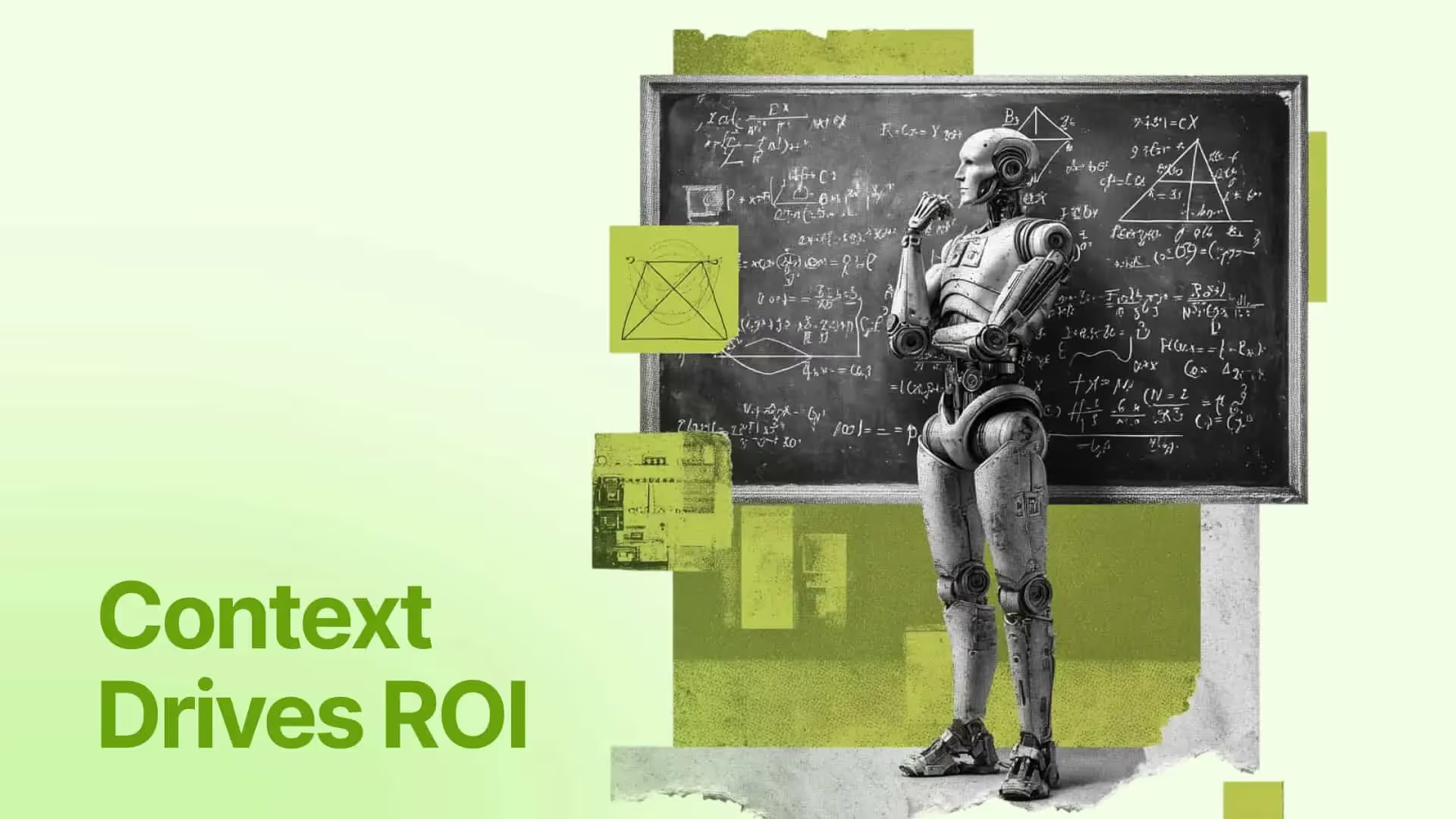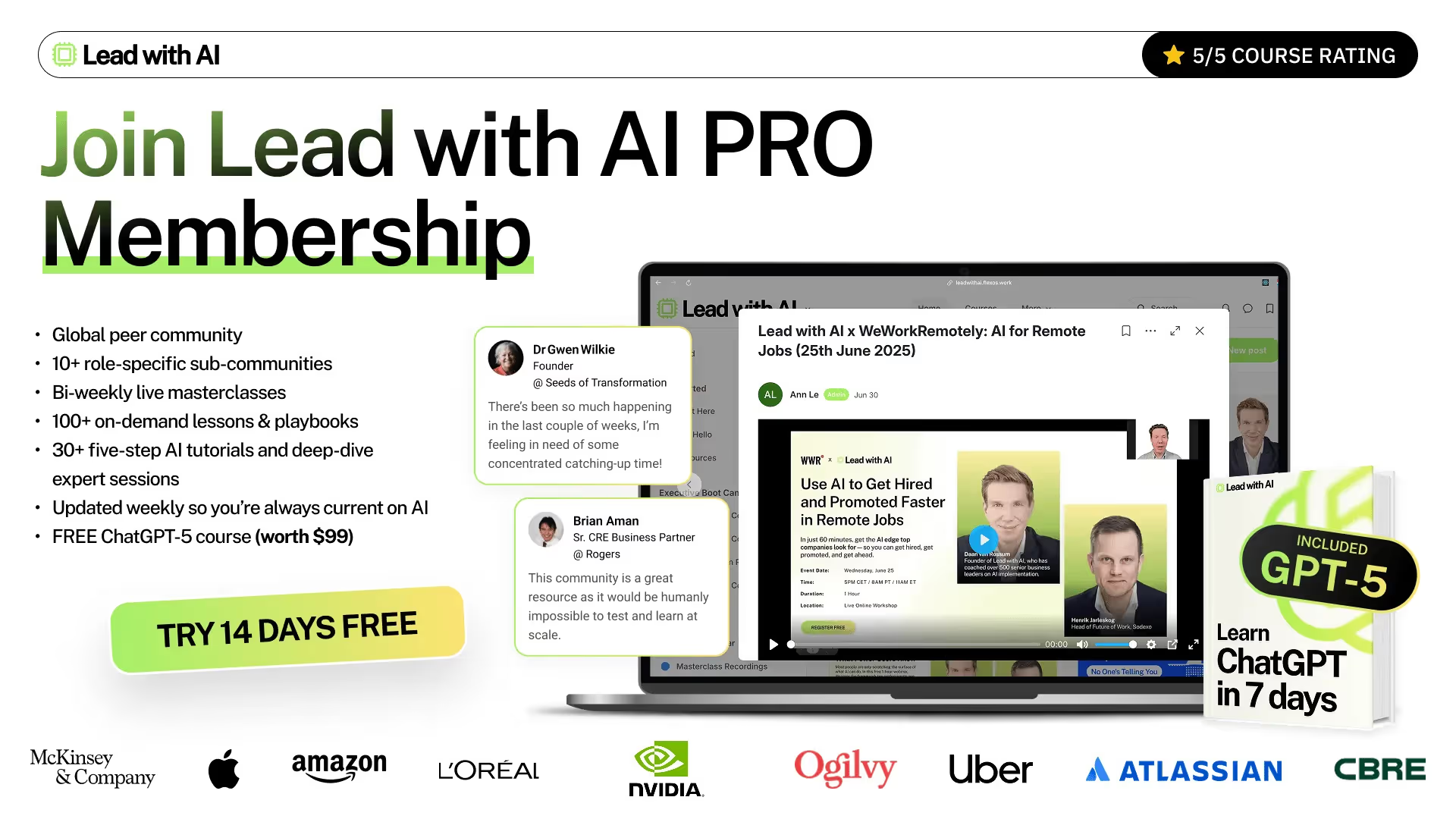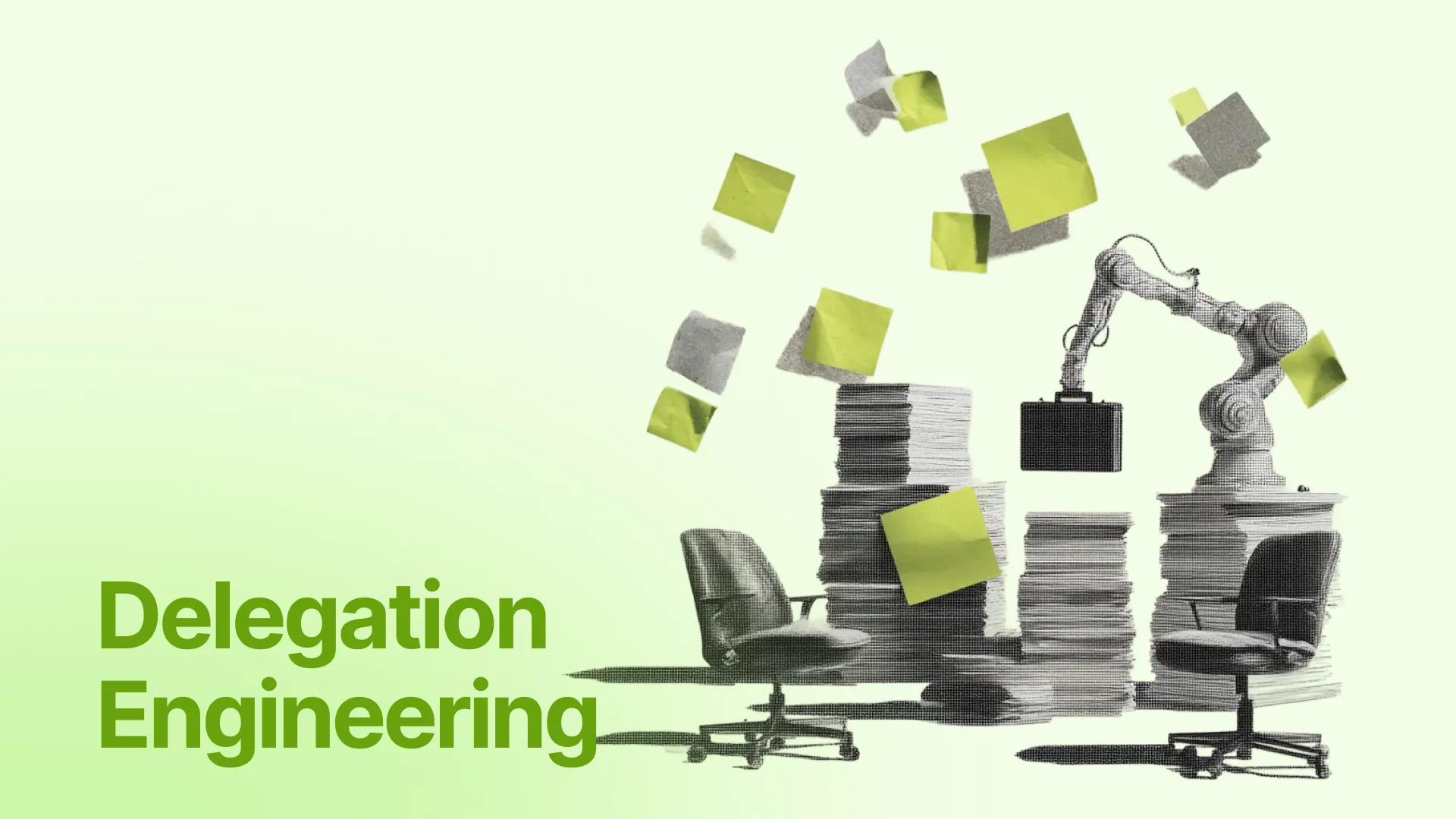
2026: Year Of Context, Year Of ROI
New research from Superintelligent, based on interviews with more than 1,000 executives, reveals a striking truth: AI agents are enterprise-ready, but enterprises are not.
Average Agent Readiness Score: 52.1 / 100
58% of organizations remain in the Pilot Stage — full of enthusiasm, short on execution.
70% report workforce skills gaps, and 44% admit their core processes aren’t even documented.
The key paradox: “Too busy to learn the thing that saves time.”
Here’s the snapshot:
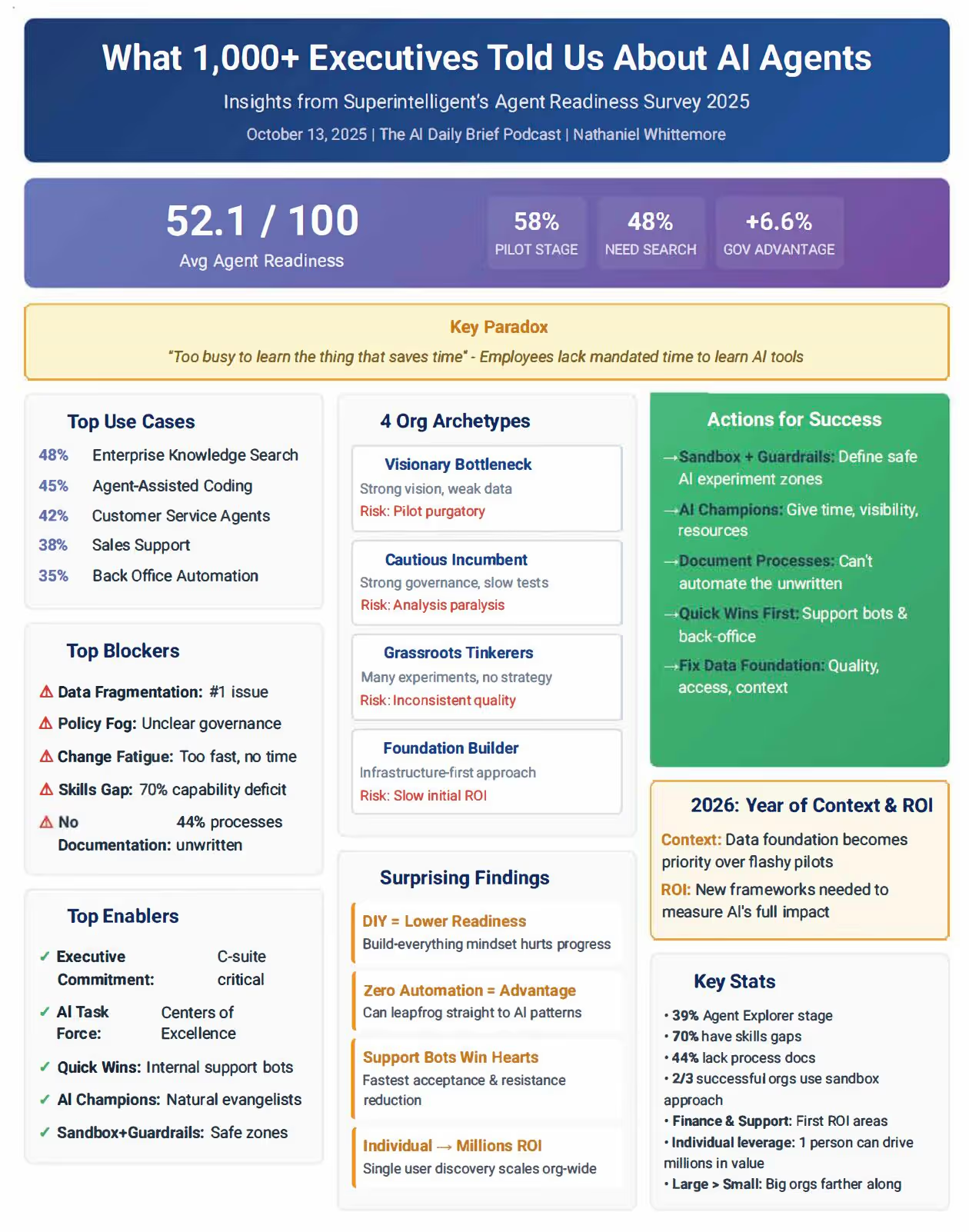
1. Use Cases Are Clear — Context Isn’t
Across industries, companies know where AI helps. Enterprise Knowledge Search (48%), Agent-Assisted Coding (45%), Customer Service Agents (42%), and Back-Office Automation (35%) are the top use cases.
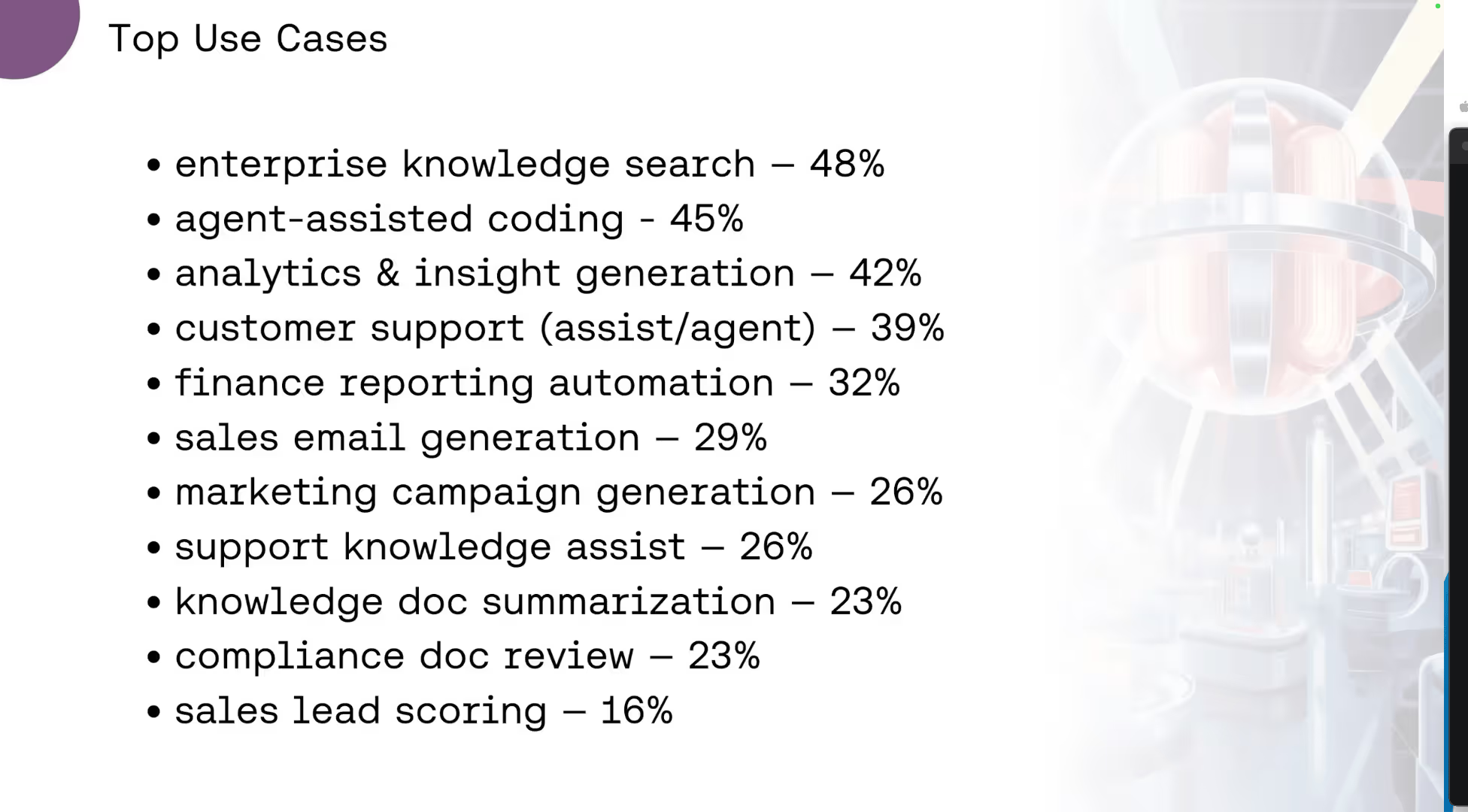
The constraint isn’t capability. It’s context.Data fragmentation remains the number-one blocker — especially in regulated sectors where access rules, security barriers, and legacy data ownership slow progress.
And then there’s time. Executives are pushing AI adoption, but employees are “too busy to learn the thing that saves time.” Without mandated learning hours, even the best copilots sit idle.
2. Governance And Documentation Turn Pilots Into Progress
The research shows governance is the hidden differentiator.Organizations with clear AI policies and safe “sandbox with guardrails” frameworks are 6.6% more agent-ready on average. They encourage experimentation without chaos.
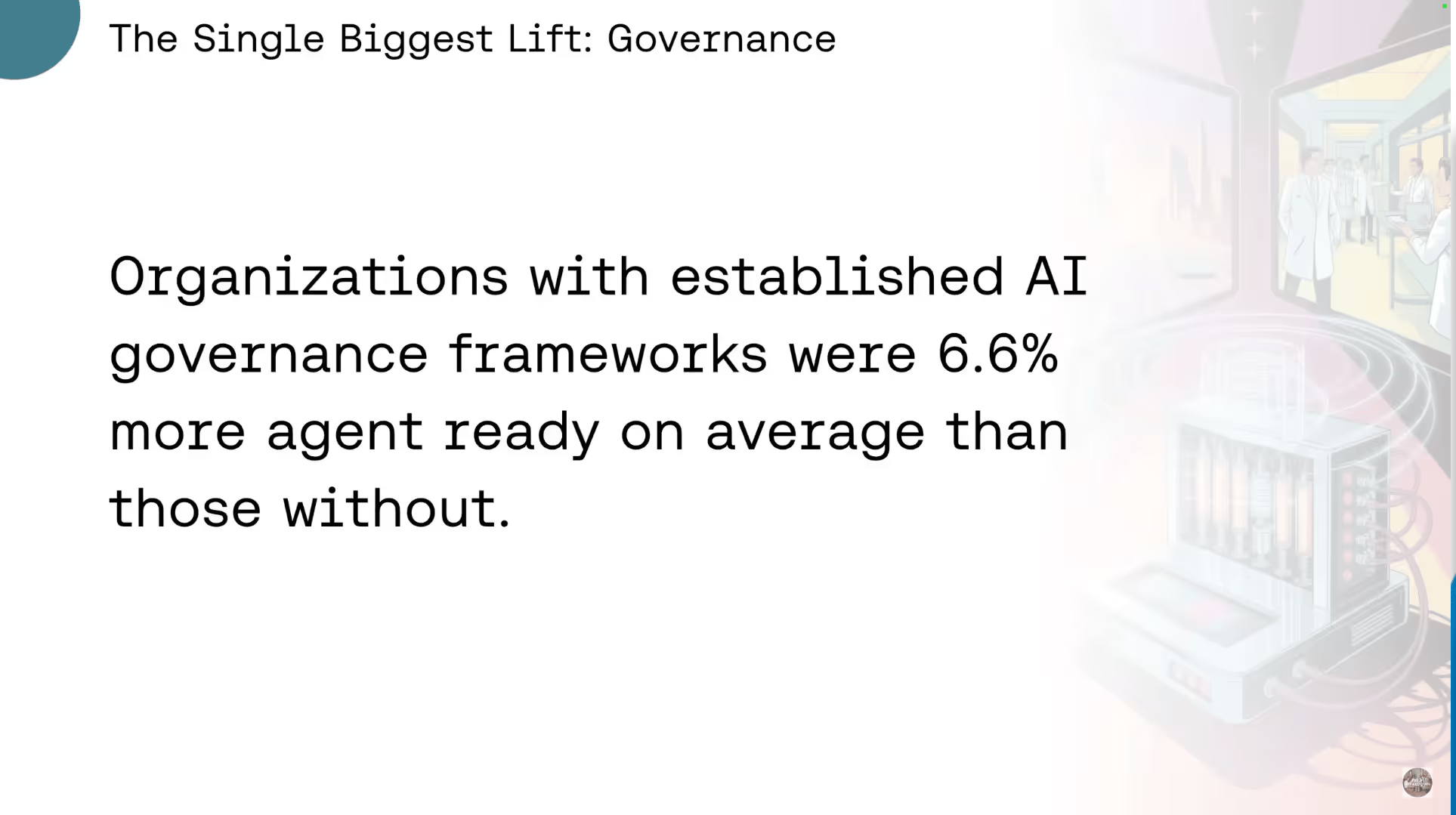
But governance alone isn’t enough. Nearly 45% of companies still lack documented workflows. Agents can’t automate what only exists in people’s heads.
The fastest-moving teams start small: recording a process in Loom, turning it into steps, and feeding it to an internal knowledge base.Documentation is no longer bureaucracy; it’s infrastructure.
3. Small Wins Start The Flywheel — Platforms Keep It Spinning
The first visible ROI appears in Finance and Support, where internal support bots win both time and hearts. They reduce friction for employees and rebuild trust in AI from the inside out.
Sometimes, the biggest returns start with one person.A single workflow innovation, like automating a reporting task, can scale across hundreds of similar roles, creating hundreds of thousands or even millions in ROI.
This is why AI champions matter. The data shows that organizations that train and elevate early adopters move fastest.They don’t just add tools. They build a community of practice.
And they stop asking whether to buy or build. In agents, there’s no off-the-shelf. Every implementation requires integration. The smartest leaders focus on orchestration, connecting systems, not just buying them.
4. Four Archetypes Define The Enterprise AI Race
Superintelligent’s study identifies four common organizational profiles:
- The Visionary Bottleneck: Strong vision, weak data. Risk: Pilot Purgatory.
- The Cautious Incumbent: Heavy governance, slow testing. Risk: Analysis Paralysis.
- The Grassroots Tinkerer: Broad enthusiasm, no strategy. Risk: Inconsistent Quality.
- The Foundation Builder: Solid infrastructure, slow ROI. Risk: Momentum Loss.
Each archetype carries both strength and danger. The trick for 2026 is knowing which one you are and how to evolve.
5. 2026: Year Of Context, Year Of ROI
Two themes will define the next year.
Context: The companies that treat data quality, access, and context as a product will finally unlock agentic performance.ROI: As one executive put it, “AI doesn’t need more excitement — it needs evidence.”
The flashiest pilots are fading. The quiet, context-first foundations are where value compounds.
The Bottom Line: Five Moves To Scale AI And Agents
- Codify Governance Early: Build a sandbox with guardrails so teams can explore safely and quickly.
- Document The Workflows: You can’t automate the undocumented. Record, transcribe, and share key processes.
- Fix Data For Context: Unify high-value domains and give agents clean, consistent access.
- Train And Elevate Champions: Invest in AI fluency, not just tools. Empower internal experts to lead. (This is where our Lead With AI Boot Camp helps organizations scale responsibly.)
- Stack Quick Wins Into A Platform: Start with support bots and back-office automation. Connect each success into a long-term system.
AI may be approaching human-level intelligence, but most organizations are still learning how to use it wisely. 2026 will reward those who turn context into capability and governance into growth.
That’s the real race, and it’s already on.

